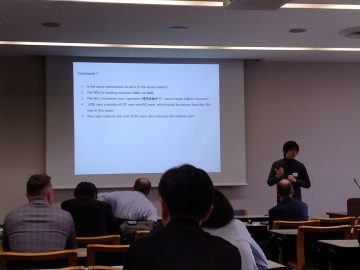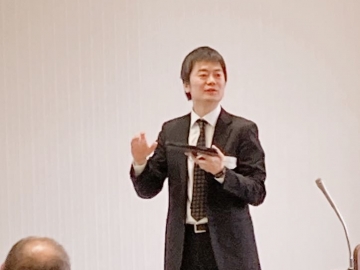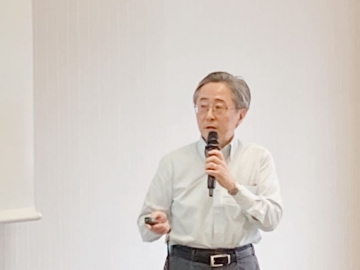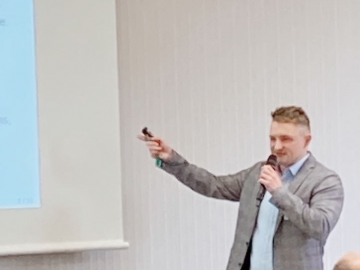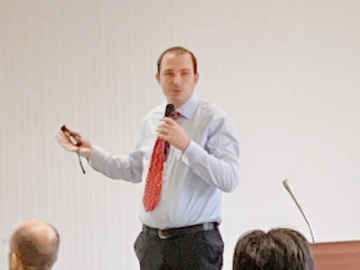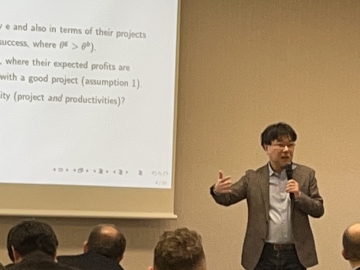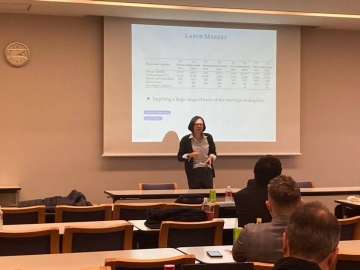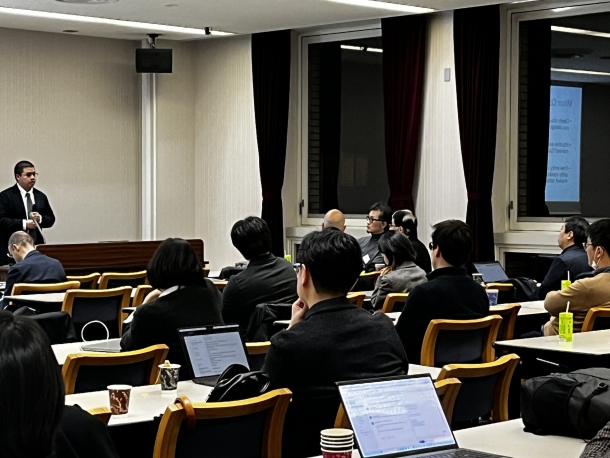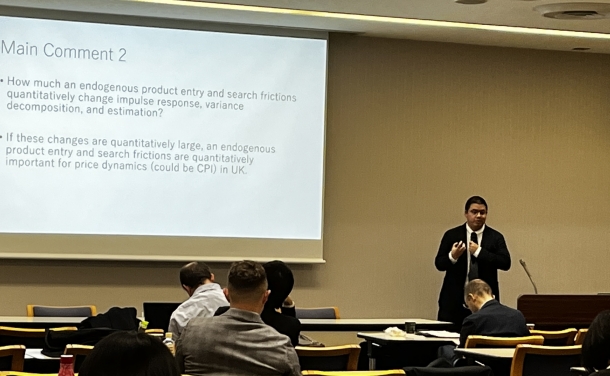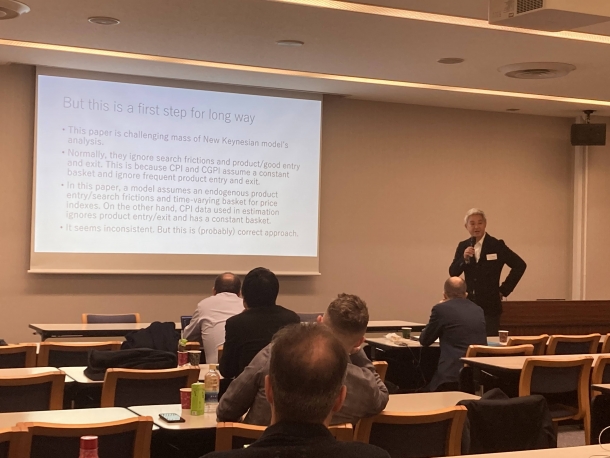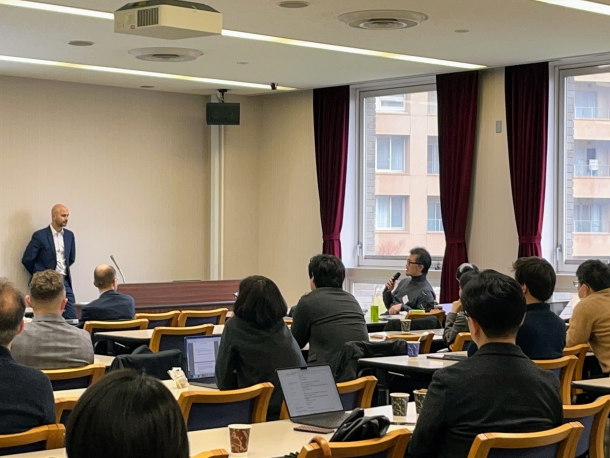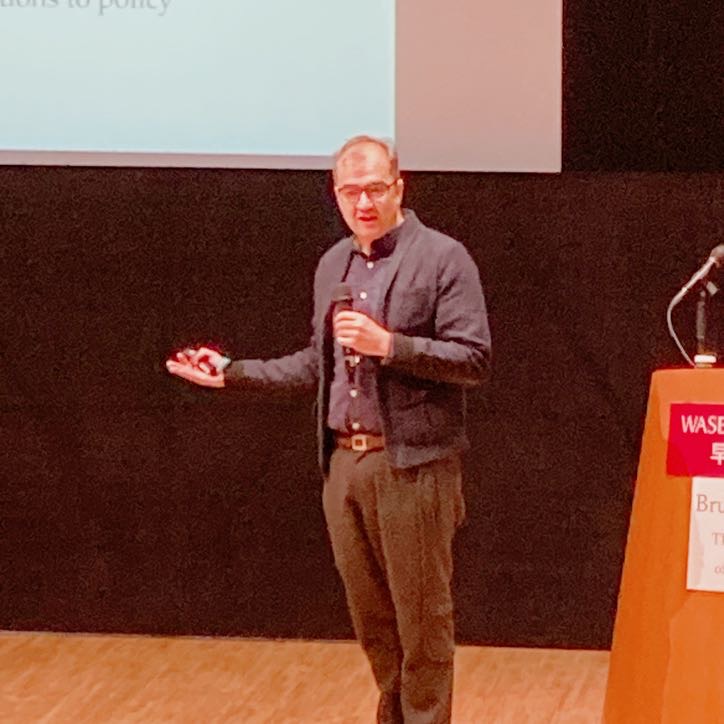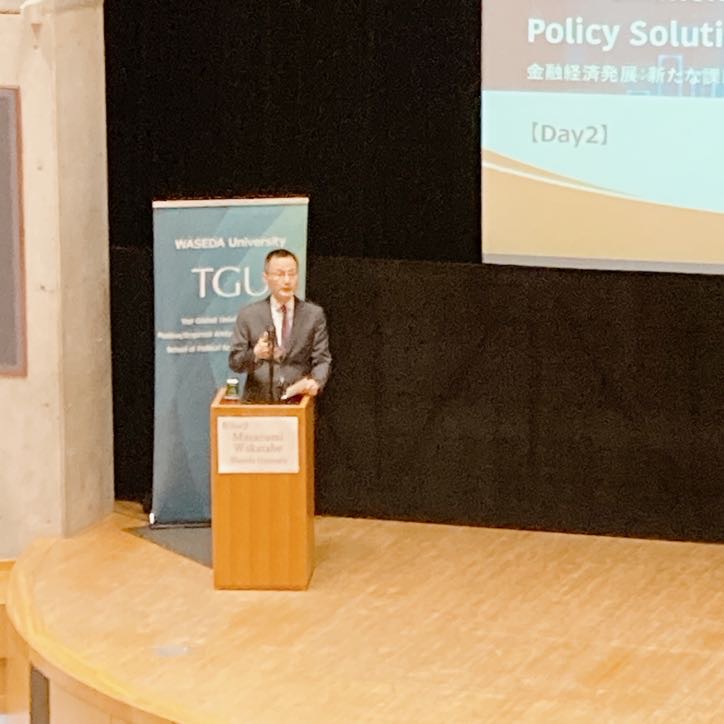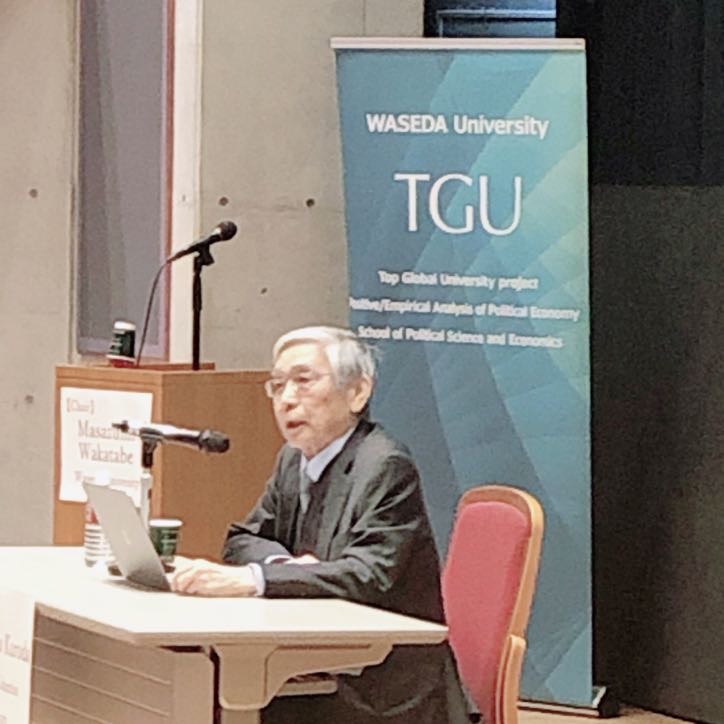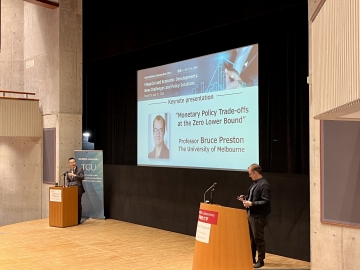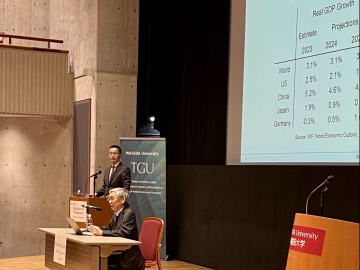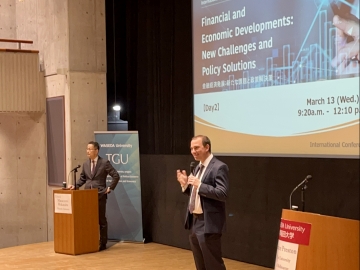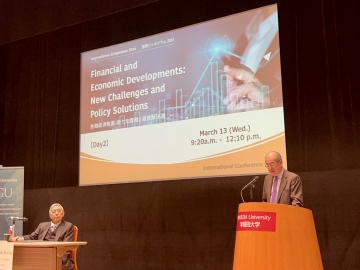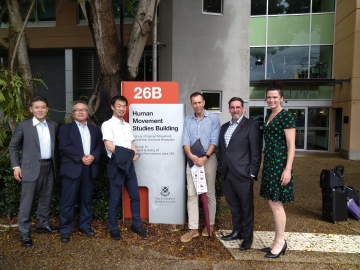The Center for Positive/Empirical Political Economy held an international symposium entitled “Financial and Economic Developments: New Challenges and Policy Solution” on March 12 (Tuesday) and 13 (Wednesday).The event was co-hosted by the University of Oxford, the Centre for Economic Policy Research (CEPR), the Bank of Japan, and the Bank of England. The symposium was supported by the Waseda University grant programme for international symposia and was co-organised with the School of Political Science and Economics from Waseda University. Over 70 participants engaged in lively discussions.
- Associate Professor Takahiro Hattori
- Professor Mitsuru Katagiri
- Professor Keiichiro Kobayashi
- Associate Professor Matthias Schlegl
☛Program
On the first day, March 12, following opening remarks by Nao Sudo, Director and Senior Economist for the Bank of Japan, the morning session featured reports and discussions on three papers. First, Professor Mitsuru Katagiri from Hosei University reported on an empirical study regarding the effects of the Bank of Japan’s ETF purchases, both through the direct channel of pushing up stock prices and the indirect purchases obtained from the stock lending market (discussions led by Associate Professor Takahiro Hattori from the University of Tokyo). Professor Keiichiro Kobayashi from Keio University presented a theoretical model on the negative externalities that spread to the entire economy due to excessive debt caused by a decline in asset prices (discussions led by Associate Professor Matthias Schlegl from Sophia University). Researcher Philip Schnattinger from the Bank of England reported empirical study results that the degree of credit market tightness has a nonlinear impact on zombie firms, which is valid for Japanese data (discussions led by Associate Professor Simone Lenzu from New York University). The session chair for the morning was Associate Professor Francesco Zanetti from the University of Oxford, and lively Q&A sessions were held between the rest of the participants.
- Researcher Philip Schnattinger
- Associate Professor Simone Lenzu
- Professor Masashige Hamano
- Researcher Thuy Lan Nguyen
In the afternoon session, chaired by Professor Takayuki Tsuruga from Osaka University, four papers were presented. Associate Professor Simone Lenzu from New York University demonstrated through a theoretical model that the inefficient use of resources caused by zombie firms could lead to a long-term recession in the entire economy, and then talked about the optimal forbearance policy (discussed by Professor Masashige Hamano from Waseda University). Researcher Thuy Lan Nguyen from the Federal Reserve Bank of San Francisco reported the empirical study on the effects of income transfer policies in Brazil using household-level microdata, and also talked about their consistency with the New Keynesian model (discussed by Associate Professor Hanbaek Lee from the University of Tokyo). Professor Daisuke Miyakawa from Waseda University reported an empirical study on how the structure of supply chain networks affects bank lending behavior using Japanese microdata (discussed by Associate Professor Takafumi Kawakubo from the University of Tokyo).
- Researcher Kongphop Wongkaew from the Waseda Institute of Political Economy
Lastly, Researcher Kongphop Wongkaew from the Waseda Institute of Political Economy (enrolled in the doctoral program in the Graduate School of Economics at Waseda University) presented a theoretical model on how frictions in the goods market affect the dynamics of inflation through the entry and exit of goods and reported estimation results based on UK data (discussed by Professor Yuki Teranishi from Keio University).
The reception that followed featured lively exchanges of opinions among the reporters, discussants, and participants. This event received significant cooperation from the Center for Positive/Empirical Analysis of Political Economy, and we were able to greet Professor Takumi Naito, Director of Waseda Institute of Political Economy, during the reception.
On the second day, keynote lectures were given by Professor Bruce Preston of the University of Melbourne and former Governor of the Bank of Japan, Professor Haruhiko Kuroda. Professor Preston reported his latest research, which demonstrates through a theoretical model that under bounded rationality, financial policy, especially forward guidance under zero interest rates, can have entirely different impacts compared to the assumption of full rationality. In the lecture by former Governor Haruhiko Kuroda, he spoke from a long-term perspective about the environment, AI, demographics, and the fragmentation of the global economy. Both topics are important issues that Japan and the world are facing, and there were active Q&A sessions from the participants at the venue. The session chair on the second day was Professor Masazumi Wakatabe, former Deputy Governor of the Bank of Japan from our university. The closing remarks were given by Masaki Kaizuka, Executive director of the Bank of Japan.
- Professor Bruce Preston
- Professor Masazumi Wakatabe
- Professor Haruhiko Kuroda
On both days, a large number of postgraduate and undergraduate students participated, making it a highly successful and international event. With the support of the Tokyo University of Foreign Studies (TUFS) international symposium grant programme and the management of the staff, we were able to organize a very successful international symposium. We would like to thank the Centre for Empirical Political Economy secretariat and all the staff who assisted in the planning and organization of the symposium.

